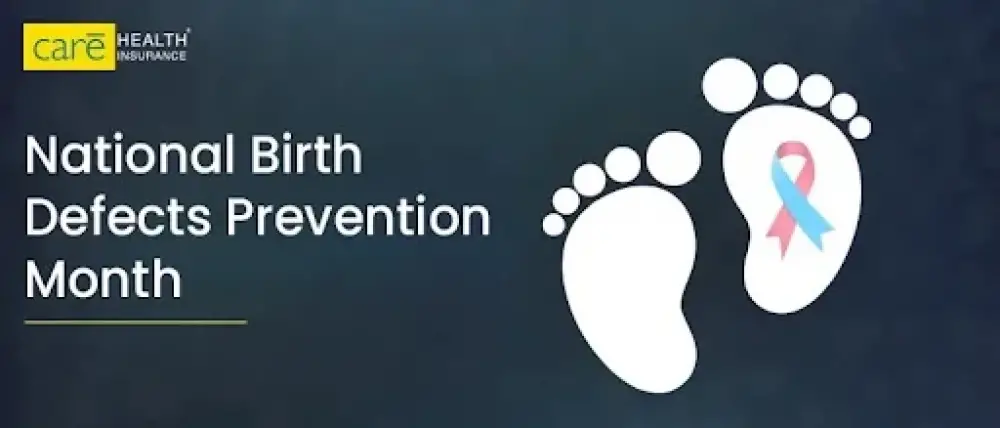Subscribe to get weekly insights
Always stay up to date with our newest articles sent direct to your inbox
Published on 10 Jan, 2025
Updated on 10 Jan, 2025
100 Views
4 min Read

Written by Ritika Malik
Reviewed by Munmi Sharma
favorite0Like
favoriteBe the First to Like
Holding your little munchkin in your arms, counting their tiny toes and little fingers, and feeling every heartbeat is one of the best feelings in the world for couples. But for this feeling, some parents have to come across a challenge they never imagined: birth defects. Did you know that, as per WHO, the prevalence of birth defects differs from 61-69.9/1000 live births?
January is National Birth Defects Prevention Month, an indication that precautionary care for pregnant mothers should be prioritised. In this guide, we will discuss the significance of this day and share information related to birth defects to better understand. So, give it a read until the end.
National Birth Defects Prevention Month is celebrated to increase awareness about birth defects and focus on precautionary measures to eliminate the probability of birth defect-related incidents. This initiative underlines straightforward and implementable steps that parents, caregivers, and healthcare experts can take to ensure healthy pregnancies.
The journey to preventing birth defects begins with spreading awareness. If you are willing to contribute, here is what you can do:
A birth defect is a structural or functional anomaly that befalls when a baby is growing in the mother’s womb. These defects can impact physical development, appearance, organ functioning, or mental ability. Also known as congenital anomalies, birth defects might differ from mild to extreme and are often diagnosed during pregnancy, at birth, or after birth. Some of the common instances involve cleft palate, Down syndrome, heart defects, and spina bifida.
Birth defects occur due to different contributing factors, usually including:
Symptoms of birth defects range from mild to severe and depend on their type and the defect severity. Here are some of the most common symptoms:
Preventive measures that can help prevent birth defects are:
Preventive care during pregnancy often involves routine tests, check-ups, and procedures that can quickly become expensive without proper health insurance. Here’s why dedicated health insurance matters:
National Birth Defects Prevention Month reminds us that a healthy pregnancy is not just a mother’s responsibility but a community effort. By making informed choices, accessing quality healthcare, and spreading awareness, we can work towards a future where every child has a healthy beginning.
Additionally, investing in health insurance policies with trusted insurers like Care Health Insurance adds a layer of security, ensuring families are ready for any challenges that come their way. So, let’s take proactive steps today to protect the promises of tomorrow.
>> Also Read: Birth Defects: Types & Cause
Disclaimer: The above information is for reference purposes only. Please refer to the official websites for more information.
favoriteBe the First to Like
शुगर कंट्रोल कैसे करे? जानें, डायबिटीज में क्या खाना चाहिए Care Health Insurance in Health & Wellness
Thyroid : मामूली नहीं हैं महिलाओं में थायराइड होना, जानें इसके लक्षण और घरेलू उपचार Care Health Insurance in Diseases
हाई ब्लड प्रेशर को तुरंत कंट्रोल कैसे करें? देखें इसके उपाय Care Health Insurance in Diseases
प्लेटलेट्स की कमी के लक्षण, कारण और इलाज क्या है Care Health Insurance in Diseases
World Chagas Disease Day: Understanding Global Health Impact of Kissing Bugs Care Health Insurance in Awareness Days
World Parkinson’s Day: Raising Hope for the Elderly Care Health Insurance in Awareness Days
World Bipolar Day 2025: Understanding Bipolar Disorder and Breaking Stigma Care Health Insurance in Health Insurance Articles
ट्यूबरक्लोसिस (टीबी) के लक्षण, कारण और इलाज Care Health Insurance in Awareness Days